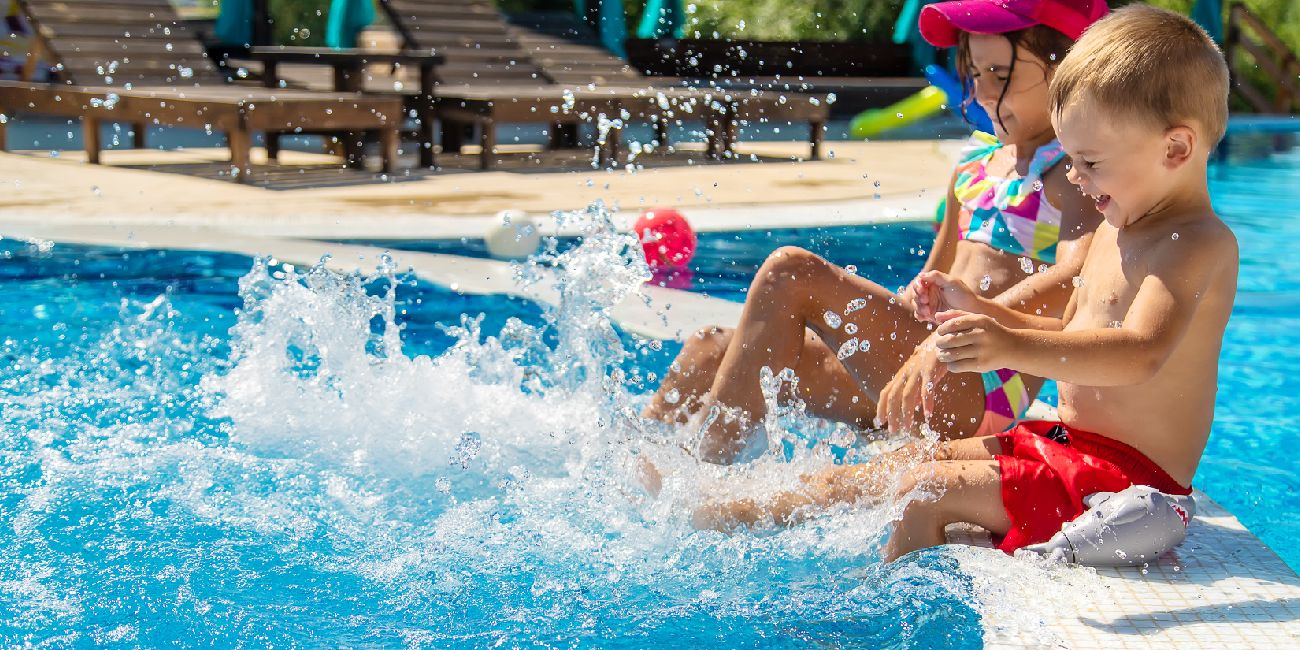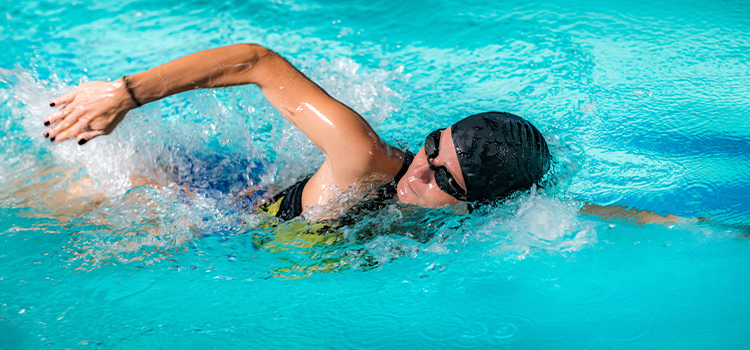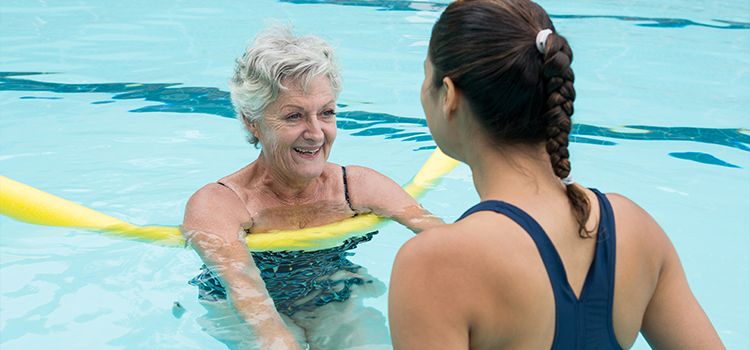
10 Ways to Practice Safe Swimming This Summer
Summer is almost here! As the temperatures rise and summer approaches, many of us eagerly anticipate days spent at the poolside or at the beach. Swimming is not only a favorite summer pastime but also an excellent way to stay fit and active during the warmer months of the year.
While swimming offers numerous health benefits, it's crucial to prioritize safety to prevent injuries and ensure an enjoyable experience. At Professional Rehab Associates, in Radford, Virginia, we are dedicated to promoting health and well-being, so we've compiled essential tips to help you practice safe swimming this summer.
10 Ways to Practice Safe Swimming This Summer
1. CHECK YOUR SKILLS
This may seem obvious, but ensuring you and your loved ones have basic swimming skills is the first step to staying safe in the water. Enroll in swimming lessons if necessary. Many community centers, YMCAs, and local pools offer lessons for all ages. Knowing how to swim can prevent panic in the water and significantly reduce the risk of drowning.

2. Never swim alone
Always swim with a buddy. Whether you're at the beach, a lake, or a pool, having someone with you ensures that help is available if needed. Even experienced swimmers can encounter unexpected issues, so the buddy system is essential. Not only is it safer to have a buddy, it can also make swimming more fun!
3. Follow Lifeguard Instructions
Lifeguards are trained to keep swimmers safe. Pay attention to their instructions and posted signs regarding swimming areas, weather conditions, and safety rules. If a lifeguard is not present, make sure you're aware of local safety guidelines.
4. Warm Up Before Swimming
Just like any other physical activity, it's important to warm up before diving into the water. Gentle stretches and a light aerobic activity, like walking or jogging, can help prepare your muscles and reduce the risk of cramps or strains.
5. Know Your Limits
Don't overestimate your swimming abilities. Swim in designated areas and avoid going too far from shore or swimming in rough conditions. If you're at a beach, pay attention to flags or warnings about currents and tides. Rip currents are common when swimming at the beach, so knowing how to get out of them is important.
6. Supervise Children Closely
We’ve all been at a pool with children running, yelling, and having fun. But, the fun can quickly disappear when someone gets hurt. Children require constant supervision when near water. Even if children know how to swim, they should wear life jackets in unfamiliar or deep water. Keep the fun going and keep kids safe while at the pool or beach.
7. Stay Hydrated
Swimming can be deceptively tiring, and it's easy to forget to drink water while you're in the water. Keep hydrated to maintain energy levels and prevent dehydration, which can cause muscle cramps and dizziness.
How much water should you be drinking during swimming activity? It is recommended to be well hydrated before beginning your swim, and drink 1 cup (8 oz.) every 15-20 minutes of activity.
8. Be Cautious with Pool Toys and Floats
Inflatable toys and floats can be fun but also pose risks if not used properly. Never rely on them as safety devices, especially for non-swimmers. Ensure they are used in designated shallow areas and under supervision.
9. Understand Water Conditions
If you're swimming in natural bodies of water, be aware of the conditions. Check for strong currents, waves, and underwater hazards like rocks or vegetation. Always enter the water feet first to gauge its depth and temperature. It can be easy to get caught in a rip current if you are unaware of the conditions before entering the water. Look for flags indicating strong currents or wildlife in the water and listen to lifeguard instructions.
10. Know CPR
In emergencies, knowing CPR can save lives. Consider taking a CPR course and encourage those around you to do the same. Having this skill can make a critical difference if someone experiences a water-related emergency.
Preventing and Managing Swimming Injuries
Despite taking precautions, injuries can still occur. Here are common swimming injuries and how to manage them:
- Swimmer's Shoulder: Overuse of the shoulder muscles can lead to inflammation. Rest, ice, and physical therapy exercises can help alleviate symptoms.
- Swimmer's Ear: Water trapped in the ear canal can cause infection. Use earplugs and dry your ears thoroughly after swimming. Seek medical attention if symptoms persist.
- Cramps: Muscle cramps can be caused by dehydration or overexertion. Stretch regularly, stay hydrated, and take breaks as needed.
If you experience any discomfort or injury, consult a physical therapist. We can provide personalized treatment plans to help you recover and get back to enjoying your swim.
Benefits of Swimming
Did you know: swimming is a great option for low-impact exercise and is especially beneficial for seniors as a form of exercise and rehabilitation.
- Low-Impact Exercise: Swimming is gentle on the joints, making it an ideal exercise for people of all ages and fitness levels.
- Reduce Risk of Osteoporosis: Swimming can improve bone mineral density, which reduces the risk of osteoporosis, which becomes more prevalent with age.
- Full-Body Workout: It engages multiple muscle groups, improving strength, flexibility, and endurance.
- Cardiovascular Health: Regular swimming can enhance heart health, improve circulation, and aid in weight management.
- Mental Well-being: Being in the water can reduce stress, and anxiety, and promote relaxation.

